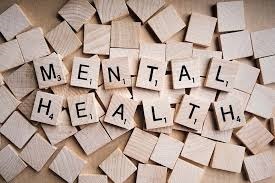Tips for Supporting One Another

Those of us working in the Division of Child and Adolescent Psychiatry at OHSU believe that the path to meeting the challenges of a complex world begins with the experience of being loved and loving others, in our homes and in our communities. Our education and experience with children and families help us to recognize that while science evolves rapidly, the basic nature of the human experience remains the same.
We are daily awed and inspired by the courage, strength and resilience of the youth and families we work with. We will continue to join with you to stand firm in advocacy for respect, diversity, compassion and equity. We will stand up against bullying, intimidation and exclusion.
We are deeply troubled that expression of hatred and threats toward various members of our society are commonly being expressed in our children’s schools and neighborhoods. Parents, teachers and mentors are struggling to find ways to reassure children that their country is not falling apart, that they will be safe and that their friends will be protected. Many find this task of providing reassurance difficult when there are so many unknowns.
Children need to know that adults around them will not accept cruelty toward others, that conflict and intolerance expressed by others should not to be emulated and perpetuated. We can help children recognize this by active discussion of cultural and moral norms and respectful listening. We must remember that youth who bully need our help as well, through limits, supervision and exploration of the source of their actions. They need sustained support to successfully participate in collaborative and mutually respectful peer culture.
Additional tips you may find useful during this time include
- Take care of yourself. Children are very aware of their loved ones’ emotions, even when they do not seem to be paying attention. Take the breaks you need to express your emotions with trusted supports and collect your thoughts. Be authentic and compassionate with your expression while helping your children learn how you are effectively processing your emotions.
- Make time to spend together; when things are hard, being together and enjoying each other’s company is a really important way to feel better.
- Let children and youth know that you want to hear about their thoughts and feelings, how they are experiencing the world, and that you will protect them.
- Remind children to talk to a trusted adult if they hear or see something they don’t understand or that bothers them about how people are treating one another.
- Monitor children’s access to media and have conversations with them about what they see or read. Limit exposure to visual media as it is harder to understand than conversation or written material.
- Look for signs of struggle: behavior changes, irritability, difficulty sleeping, physical complaints that signal stress.
- Young children typically express and work through their stress in their play. Encourage their imagination and creativity. They are exercising their minds: developing characters, stories and scenarios that help them manage their hopes and fears. Try not to jump in and offer interpretations ("this lion reminds me of a bully") or interrupt with questions ("is this making you think of what you heard on the news?"). Instead, simply describe what you observe ("this lion is roaring.")
- Grade school age and slightly older children are applying their ideas in their world. Help them gain understanding and perspective by reading about history and how people can disagree, find common ground and work for good. Help them generate ideas about what they would like to do influence their world and implement what is feasible.
- Teens and young adults have greater independence to engage in action. Supporting creative and safe participation in championing causes and addressing concerns can counteract despondency, fear and urges for withdrawal.
- If you are worried that your child is struggling or if your child has talked about self-harm, seek care from a mental health professional or contact a crisis line: Suicide Lifeline (Lines for Life): 800-273-8255 or text 273TALK to 839863.
Love and connection are healing and powerful forces that promote courage, cohesion and resilience, setting the stage for healthy child development and a healthy society.